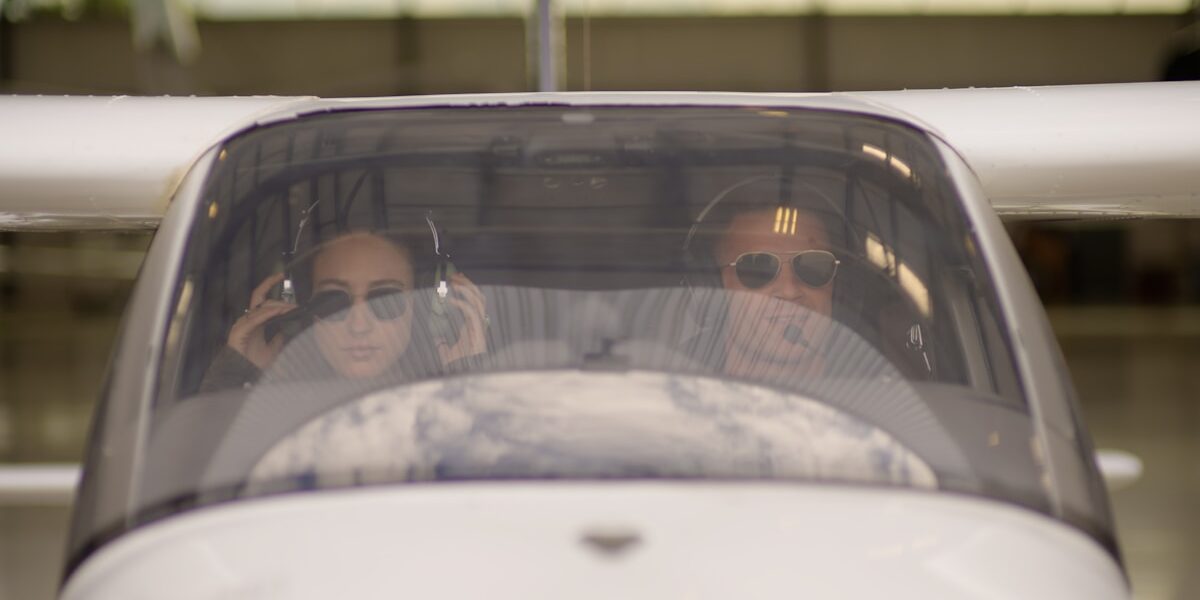Student Pilot Medical Certificate
Student Pilot Medical Certificate
Getting your student pilot license is the first step towards a career in aviation. One of the key requirements is obtaining a medical certificate. This certificate ensures that you meet the necessary health standards to fly safely.

Why Is It Important?
Pilot health is critical. Even minor health issues can lead to catastrophic events in the air. The medical certificate acts as a safeguard. It ensures that the person flying is physically and mentally fit. The Federal Aviation Administration (FAA) mandates these health checks.
Types of Medical Certificates
There are three main classes of medical certificates:
- First-class
- Second-class
- Third-class
Student pilots generally need a third-class medical certificate, which has the least stringent requirements. However, if you plan to pursue a career as a commercial pilot later on, you might consider a first or second-class certificate.
Steps to Get a Medical Certificate
The process is straightforward. Here are the steps:
- Find an Aviation Medical Examiner (AME)
- Schedule an appointment
- Complete the medical examination
- Receive your certificate
Use the FAA’s online directory to locate an AME near you. Once you’ve found an examiner, call their office to schedule your medical exam. Prepare by bringing necessary identification and medical history information.
The Medical Examination
The exam itself is thorough but not overly complex. It typically involves:
- Vision tests
- Hearing tests
- Blood pressure and pulse
- Medical history review
- Physical examination
The vision tests ensure you can see clearly at various distances. Hearing tests check your ability to hear normal conversational tones. Blood pressure and pulse are measured to assess cardiovascular health. The medical history review looks at past illnesses, surgeries, and medications. The physical examination checks overall physical fitness.
Vision Requirements
You need at least 20/40 vision in each eye, with or without correction. If you wear glasses or contact lenses, you must bring them to the exam. Depth perception and color vision are also checked. Inability to distinguish colors could limit your certification.
Hearing Requirements
Your hearing ability must allow you to understand a normal spoken conversation. This ensures you can hear communications from air traffic control and other important audio cues. If you use hearing aids, you must bring them to the exam.
Medical History Review
The AME will ask about your medical history in detail. This includes past illnesses, surgeries, and any medications you are taking. Be honest and thorough. Concealing information can risk your certification and safety.
Physical Examination
This part of the exam assesses your overall health. The AME will check various aspects, such as your heart, lungs, abdomen, and neurological health. These checks ensure you’re physically capable of handling the demands of flying.
Disqualifying Conditions
Certain medical conditions may disqualify you from obtaining a medical certificate. These include:
- Diabetes requiring insulin or medication
- Severe heart conditions
- Epilepsy
- Psychosis
- Substance abuse
If you have a condition that may disqualify you, discuss it with your AME. Some conditions may be managed with special issuances or further tests.
Special Issuance
If you have a disqualifying condition, you may still obtain a medical certificate through a process known as special issuance. This involves additional documentation or testing. The FAA reviews these cases on an individual basis. You may need to provide medical records, undergo further testing, or follow specific treatment protocols.
Duration of Validity
Your medical certificate has a limited duration of validity. For student pilots under 40, a third-class medical is valid for 60 months. For those 40 and older, it is valid for 24 months. It’s essential to renew your certificate before it expires to maintain your flying privileges.
How to Renew Your Medical Certificate
Renewing your medical certificate involves repeating the initial steps. Schedule an appointment with an AME. Undergo the medical examination, including any necessary tests. Continue maintaining your health to ensure you can pass the renewal process.
Preparing for the Examination
Preparing for your medical exam can improve your chances of passing. Here’s how you can get ready:
- Get a good night’s sleep
- Avoid caffeine before your exam
- Bring all required documents
- Be honest about your medical history
Your health on the day of the exam affects the results. Being well-rested helps keep your blood pressure stable. Avoiding caffeine reduces the chances of elevated heart rate. Having all documents ensures a smooth process.
Common Misconceptions
There are several misconceptions about the medical certificate process. Some believe it’s difficult to pass. Others worry about minor health issues. In reality, many conditions can be managed. The goal is to ensure safety, not to ground you unnecessarily.
What If You Fail?
Failing the medical exam doesn’t mean the end of your flying aspirations. You can appeal the decision or seek a second opinion. Work with your AME to understand why you didn’t pass. Some issues may be temporary. Addressing them can lead to a successful re-examination.
The Role of the AME
The Aviation Medical Examiner plays a crucial role. They are trained and certified by the FAA. Their job is to ensure pilots meet the health standards. Building a good relationship with your AME can make the process smoother.
International Students
International students also need to obtain an FAA medical certificate if they plan to train in the United States. The process is similar. Find an AME in the U.S. or in your home country if they are FAA-certified. Follow the same steps to complete the exam.
Costs Involved
The cost of obtaining a medical certificate varies. It depends on the examiner and location. Typically, expect to pay between $75 and $200. This fee covers the exam and any necessary tests. Some AMEs accept insurance, while others may require payment upfront.
Technology in Medical Exams
Modern technology has streamlined the medical exam process. The FAA uses an online system known as MedXPress. This allows you to complete your medical history form before your appointment. This speeds up the examination process. It also ensures that your information is accurate and complete.
Tips for Success
Navigating the medical certification process can be easy with these tips:
- Maintain a healthy lifestyle
- Stay informed about FAA health requirements
- Keep regular check-ups with your personal doctor
- Be proactive about any health issues
A healthy lifestyle includes regular exercise and a balanced diet. Avoid smoking and excessive alcohol consumption. Staying informed helps ensure you meet all requirements. Regular check-ups can catch issues early. Being proactive about health issues means addressing them before they become disqualifying conditions.
Medical Standards for Other Certificates
If you decide to pursue higher levels of certification, standards will be more stringent. First-class medical certificates are for Airline Transport Pilots. They have the most rigorous requirements. Second-class certificates are for Commercial Pilots. They fall between the first and third class levels. Understanding these standards early can help you prepare if you aim for a higher certification in the future.
Resources
Several resources can help you understand and navigate the medical certification process. The FAA website is the best place to start. It provides comprehensive information on medical standards, forms, and examiner directories. Aviation schools often provide guidance and support for student pilots. Your flight instructor can also be a valuable resource. Networking with other pilots can offer insights and tips from those who’ve been through the process.
Obtaining your student pilot medical certificate is a crucial step in your aviation journey. Understanding the requirements and process can make it less daunting. Remember, the goal of the medical exam is to ensure safety for you and your passengers. Take the necessary steps to maintain your health and stay informed. This will help you succeed in your aviation career.


